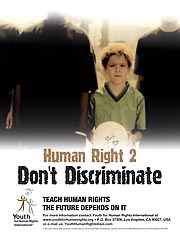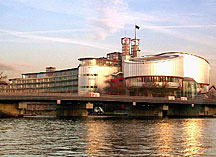|
Church of Scientology of Moscow Wins Landmark Decision In European Court of Human RightsóConfirmation of Scientology's Religious Bona Fides by the Highest Court in Europe
Aprl 5, 2007
In a unanimous landmark decision today, the European Court of Human Rights (First Section) found in favor of the Scientology religion, upholding the religious freedom of Scientologists throughout the forty-six nations that comprise the Council of Europe, in a precedent-setting ruling that will help guarantee these rights for people of all faiths.
The court overturned the Moscow City government's refusal to register the Church of Scientology of Moscow as a religious organization.
The Court in its opinion "referred to its settled case-law to the effect that, as enshrined in Article 9, freedom of thought, conscience and religion is one of the foundations of a 'democratic society' within the meaning of the Convention. It is, in its religious dimension, one of the most vital elements that go to make up the identity of believers and their conception of life, but it is also a precious asset for atheists, agnostics, skeptics and the unconcerned. The pluralism indissociable from a democratic society, which has been dearly won over the centuries, depends on it."
The Court went on to find that "In the light of the general principles outlined above, the ability to establish a legal entity in order to act collectively in a field of mutual interest is one of the most important aspects of freedom of association, without which that right would be deprived of any meaning. The Court has expressed the view that a refusal by the domestic authorities to grant legal-entity status to an association of individuals may amount to an interference with the applicants' exercise of their right to freedom of association. Where the organisation of the religious community is at issue, a refusal to recognise it also constitutes interference with the applicants' right to freedom of religion under Article 9 of the Convention. The believers' right to freedom of religion encompasses the expectation that the community will be allowed to function peacefully, free from arbitrary State intervention."
The Court then found that in view of the Court's finding above "the reasons invoked by the Moscow Justice Department and endorsed by the Moscow courts to deny re-registration of the applicant branch had no legal basis, it can be inferred that, in denying registration to the Church of Scientology of Moscow, the Moscow authorities did not act in good faith and neglected their duty of neutrality and impartiality vis-à-vis the applicant's religious community. In the light of the foregoing, the Court considers that the interference with the applicant's right to freedom of religion and association was not justified. There has therefore been a violation of Article 11 of the Convention read in the light of Article 9."
Elena Saycheva, spokesperson of the Church of Scientology of Moscow, praised the court's ruling saying, "This decision not only confirms the rights of churches of Scientology, but also sets another important precedent to protect the rights of all other religious communities in Europe."
In Church of Scientology Moscow vs Russia (Application no. 18147/02), the Church of Scientology of the City of Moscow filed an application regarding the refusal of the Moscow department of Justice to re-register the Church as a religious organization. The Church of Scientology of Moscow was first registered in 1994. After a change in the law the Church filed an application for re-registration. The Church complained that the refusal of its application violated fundamental rights guaranteed by the European Convention on Human Rights.
In today's decision, the European Court of Human Rights unanimously confirmed that the Russian Federation violated the Church's rights under the European Convention on Human Rights, specifically Article 11 (freedom of assembly and association) of the European Convention on Human Rights read in the light of Article 9 (freedom of thought, conscience and religion).
This finding guarantees protection for Scientology churches not only in Russia but also in all 46 member nations over which the Council of Europe has jurisdiction.
The Scientology religion was founded by L. Ron Hubbard. The first church was established in the United States in 1954. It has grown to more than 7,500 churches, missions and groups and ten million members in 163 nations. The Russian Federation has more than 40 Scientology churches and missions from St. Petersburg to Vladivostok.
For more information about Scientology, see www.scientology-moscow.ru or www.scientology.org
|




